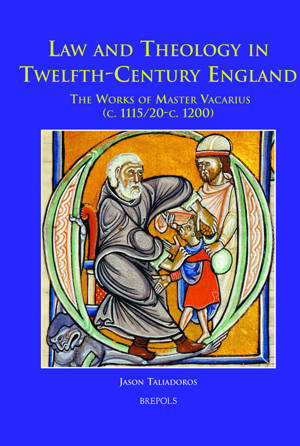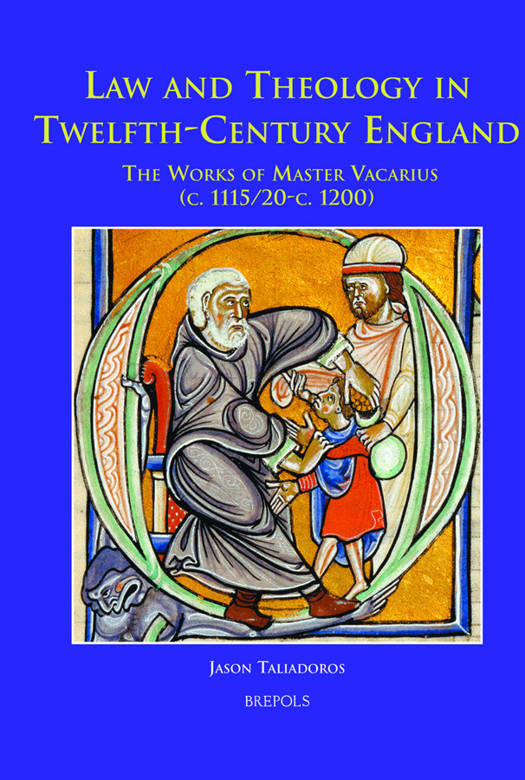
- Afhalen na 1 uur in een winkel met voorraad
- Gratis thuislevering in België vanaf € 30
- Ruim aanbod met 7 miljoen producten
- Afhalen na 1 uur in een winkel met voorraad
- Gratis thuislevering in België vanaf € 30
- Ruim aanbod met 7 miljoen producten
Zoeken
Law and Theology in Twelfth-Century England
The Works of Master Vacarius (C. 1115/20 - C. 1200)
Jason Taliadoros
€ 74,20
+ 148 punten
Omschrijving
This book explores the legal and theological thought of Master Vacarius (c.1115/20 - c.1200), the renowned twelfth-century jurist. It focuses on this Italian master's four works, composed in the second half of the twelfth century, which deal with the resolution of conflict in law and theology. Vacarius is a paradox for scholars. They have found it difficult to reconcile his role as a legal teacher, notably through his textbook the Liber pauperum ('Book of the Poor'), which established a school of Roman law at Oxford, with his 'extra-legal' works on marriage, Christology and heretical theology. This study accounts for this paradox by exploring these three extra-legal treatises, composed in the 1160s and 1170s, in light of Vacarius' legal textbook. The author argues that Vacarius applies the legal method of the ius commune (European common law) to theological and sacramental debates. In this way, Vacarius represents a trend in medieval intellectual history, particular to the twelfth-century renaissance, which has been little appreciated to date - the hermeneutic of the 'lawyer-theologian'.
Specificaties
Betrokkenen
- Auteur(s):
- Uitgeverij:
Inhoud
- Aantal bladzijden:
- 321
- Taal:
- Engels
- Reeks:
- Reeksnummer:
- nr. 10
Eigenschappen
- Productcode (EAN):
- 9782503517827
- Verschijningsdatum:
- 09/02/2007
- Uitvoering:
- Hardcover
- Formaat:
- Genaaid
- Afmetingen:
- 165 mm x 241 mm
- Gewicht:
- 725 g

Alleen bij Standaard Boekhandel
+ 148 punten op je klantenkaart van Standaard Boekhandel
Beoordelingen
We publiceren alleen reviews die voldoen aan de voorwaarden voor reviews. Bekijk onze voorwaarden voor reviews.







